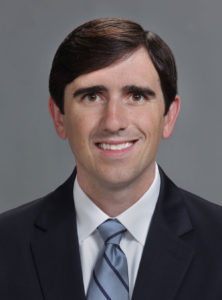FCL Knee Injury Specialist

Are you an athlete who participates in contact sports? If so, you may be at risk of an FCL knee injury. The FCL helps stabilize the knee during side to side motion and can be injured from a tackle, fall or awkward landing. FCL tear specialist, Dr. Robert Boykin provides diagnosis and both surgical and nonsurgical treatment options for patients in Asheville who have sustained an FCL tear. Contact Dr. Boykin’s team today!
Overview of an FCL Knee Injury
The fibular collateral ligament (FCL) connects the thigh bone (femur) to the outside leg bone (fibula) and provides stability to the knee, especially when the leg bones are forced to the inside. The FCL may also be referred to as the lateral collateral ligament (LCL) because of its lateral location on the knee. The FCL ligament has flexibility throughout the knee range of motion which helps prevent injury.
The FCL is part of the Posterolateral Complex (PLC) of the knee, which helps stabilize the knee during side to side motion and rotation. An injury to the FCL is most common among contact sports such as football, hockey, and soccer. Usually when the FCL is damaged, other ligaments and structures within the knee may be injured as well due to the fact that the mechanism for the injury is usually associated with a large amount of force. Dr. Robert Boykin specializes in the treatment of FCL knee injuries for patients in Asheville, Arden, Fletcher and surrounding communities.
Symptoms of an FCL Knee Injury
Symptoms which are common with a FCL tear may also be seen with other knee injuries, which is why it is important to seek medical attention if you note any of these symptoms:
- Pain along the lateral (outside) aspect of the knee
- Instability of the knee (feeling that the knee is shifting)
- Swelling
- Catching, popping, or locking sensation felt within the knee during movement
- Numbness or coolness in the foot*
* These symptoms can indicate a neurovascular injury and medical attention should be sought immediately
How to Diagnose an FCL Injury
Dr. Boykin will conduct a thorough history and examination of the knee checking for knee pain, mobility, flexibility and strength. He will perform a series of tests to evaluate all of the ligaments of the knee and also order an X-ray. In certain cases he will request that specialized stress X-rays be performed on both knees to compare stability. He may also order a MRI scan to further examine the extent of injury to the FCL and damage to any surrounding structures of the knee. If it is found that the FCL injury is not of a severe nature then it will most likely respond well to a period of rest and other non-surgical treatments such as icing, anti-inflammatory medications, and bracing of the injured knee. It has also been found that physical therapy is an essential non-surgical treatment for an minor FCL injury. If the FCL has a complete tear and instability is noted, or if other injuries are also present, it may be recommended that a patient undergo surgical treatment
When to have FCL Surgery
For FCL injuries that are more severe, and especially if other ligaments are involved, Dr. Boykin will most likely recommend a surgery to perform an FCL reconstruction. During this type of procedure, Dr. Boykin will remove the torn ligament and replace it with a graft of similar size. If the entire PLC is involved he will also perform a PLC reconstruction. Because of the complexity of the surgery, an open procedure is used to identify and protect the nerves and blood vessels of the leg.
For additional information regarding FCL knee injuries, or if you would like to schedule an appointment with Dr. Robert Boykin who treats patients in Asheville, Arden, Fletcher and surrounding North Carolina communities, please contact his office.
